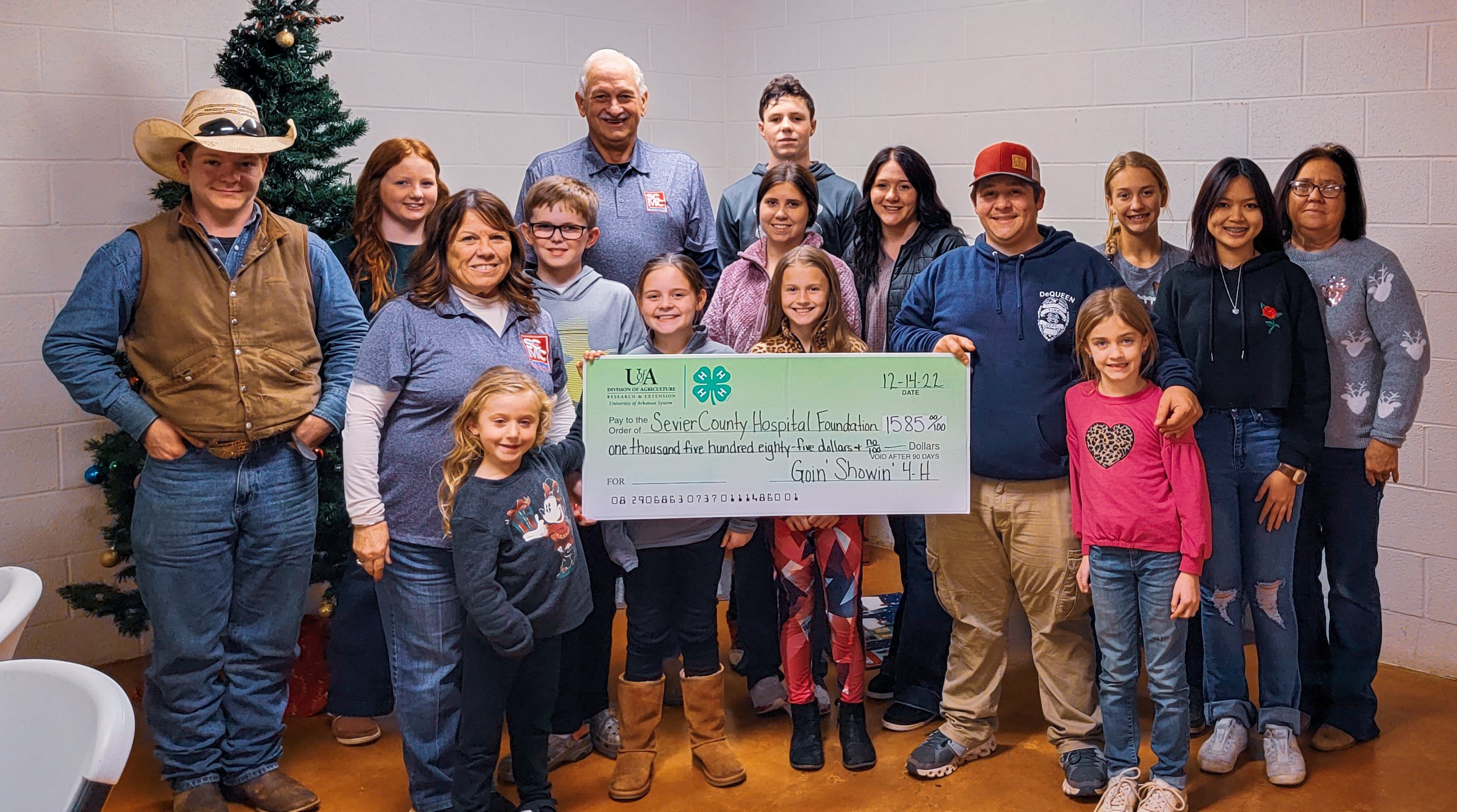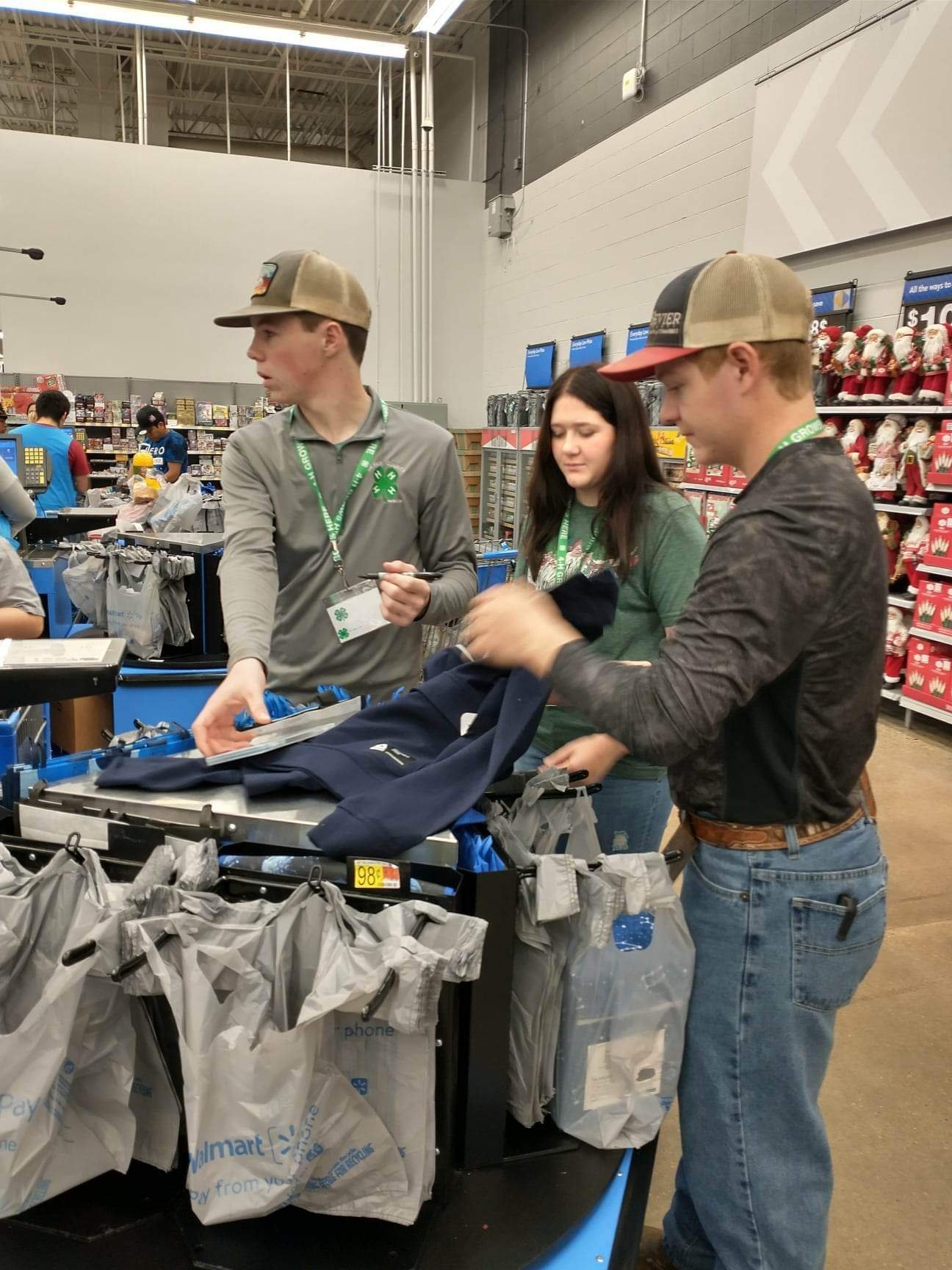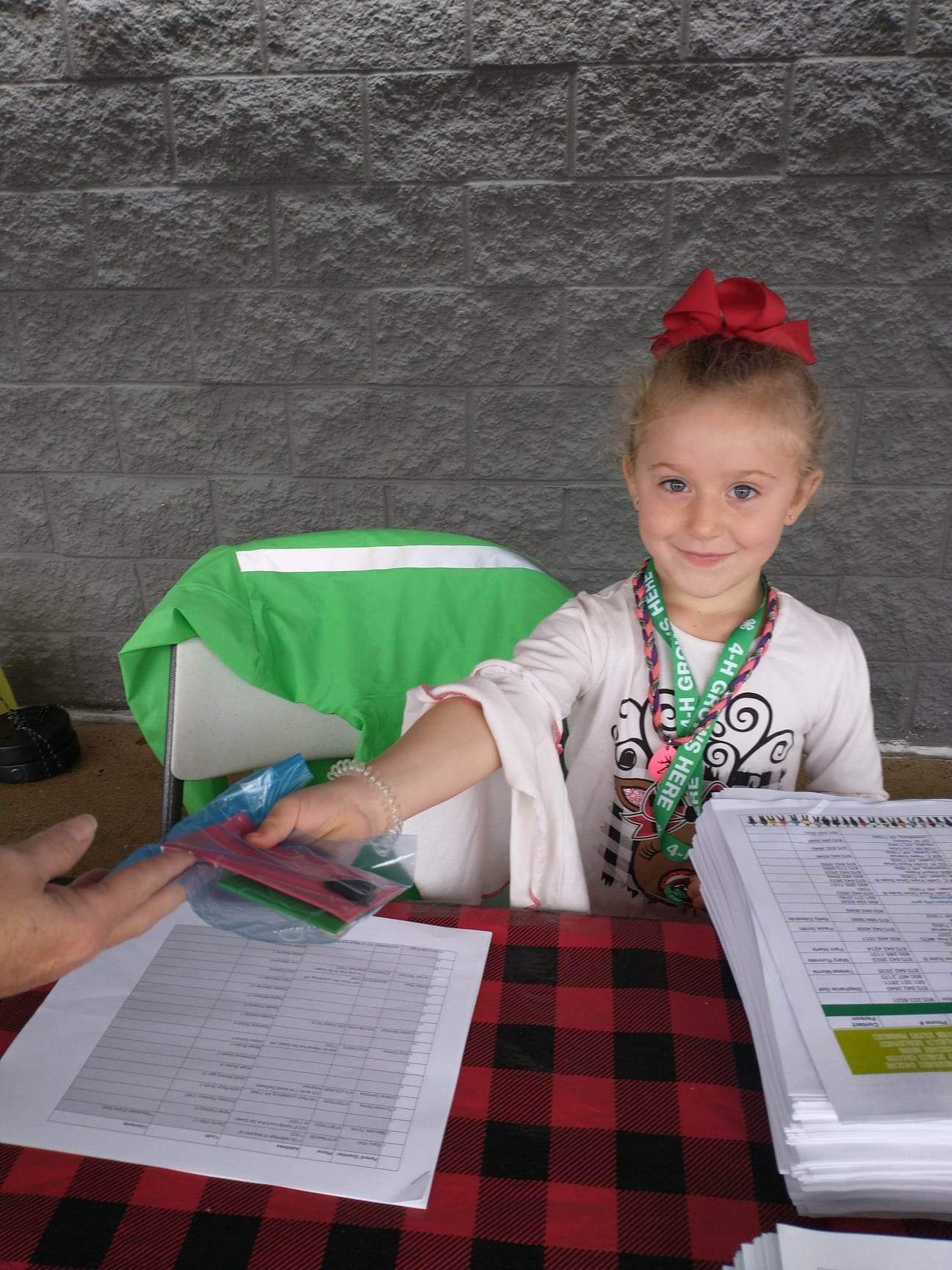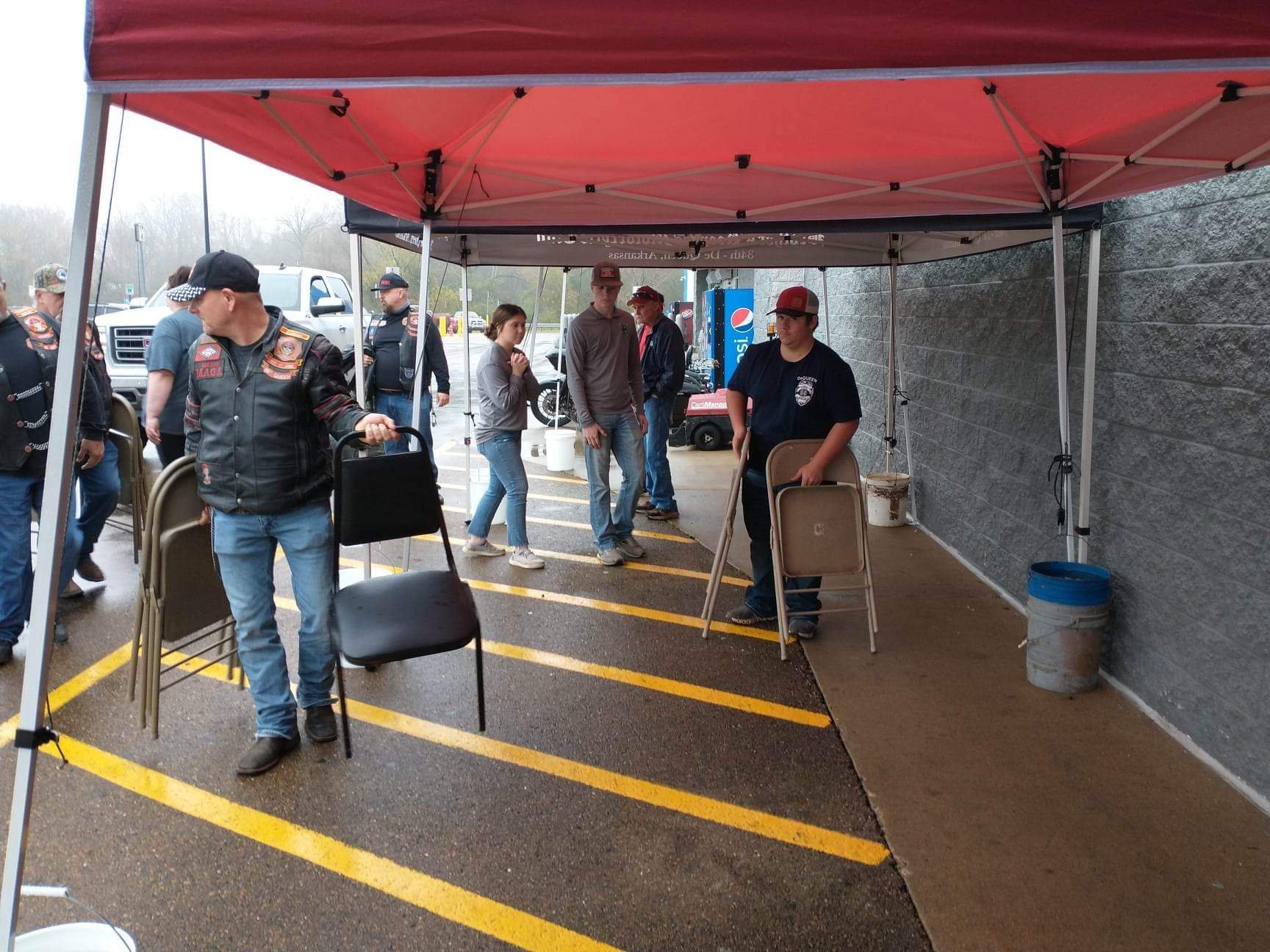Jesse Bocksnick, extension 4-H outdoor skills coordinator for the University of Arkansas System Division of Agriculture, said safely operating guns and ATVs can minimize the risk of accidents.
“Accidents happen — we can’t be 100 percent safe all the time,” Bocksnick said. “But the main thing is to practice good, safe operation of ATVs and safe gun handling so that when an accident does happen, we can minimize it and it’s just a scare – not a tragic story that we talk about years later as a teaching tool.”
Proper firearm handling
When it comes to safe gun handling, Bocksnick said three elements are key: muzzle control, action open and trigger control.
The muzzle is the part of the firearm where the bullet exits the gun. Keeping the muzzle pointed in a safe direction at all times can help prevent accidents or minimize the damage of an accident.
“Every year it seems like somebody gets hurt with an ‘empty gun,’ and that’s because they think it’s unloaded, and it’s not,” Bocksnick said.
The action on a gun is the part where the ammunition enters the chamber and is then extracted when the gun is fired. By keeping the action open, the user indicates to others that the gun is unloaded until it is time to shoot.
“When that action is closed, nobody knows if there’s a bullet in the chamber,” Bocksnick said. “You just assume that it’s loaded. We assume that all guns are loaded all the time – it just keeps things safer that way.”
Trigger control means “you keep your finger off the trigger until your sight is on the target,” Bocksnick said.
“A lot of folks, especially young folks, when you hand them a firearm, the first thing they do is wrap their hand around the grip and they’ve got a finger on the trigger,” Bocksnick said. “We don’t want to do that.”
For adults who are excited to introduce hunting and shooting sports to the young people in their lives, Bocksnick said it’s important to brush up on safety skills, as many adults develop poor safety habits over time.
“People are usually excited about training young folks and getting them out there,” he said. “It’s a family pastime, and they want to pass that tradition along to their family members, but sometimes they have unsafe habits, or they don’t realize how unsafe they actually are with a firearm. When they’re talking to kids and teaching them the basics of hunting, sometimes they may skip over or take for granted some of those basic firearm controls.”
When training youth on proper firearm handling, Bocksnick said another issue is handing off firearms to young people too soon.
“If they can’t physically work the action, hold the gun up, or handle the recoil, they’re too small,” he said. “You need to wait until the next year, or maybe the year after that. I see a lot of parents push kids too fast. They want them to be that hunting buddy so badly that they give them a little too much responsibility for their age.”
ATV and UTV safety
Riding ATVs and UTVs, or all-terrain and utility task vehicles, can be a fun way to explore the outdoors. But these vehicles can be very dangerous for riders if not handled safely.
Bocksnick said that for ATVs and UTVs, the “number one thing to remember is to wear a helmet.”
“It is the single most important piece of safety equipment that a person – adult or youth – can wear,” he said. “It must be a Department of Transportation-approved helmet.”
It is also critical to follow the age recommendations of the vehicle’s manufacturer, Bocksnick said.
“Most ATVs and UTVs are 16 years old and up,” Bocksnick said. “Just because a youth can steer a machine or push the throttle doesn't mean they are capable of driving that machine. ATVs are ‘rider active’ machines that require the operator to use their body weight and active movement to properly ride the machine and make it handle properly. With UTVs, if a youth cannot sit in the seat properly with their back against the seat, buckled in, and reach all the controls, they are too young.”
Bocksnick said a common misconception about UTVs is that they are safe for children because they have a roll bar or rollover protective structures. But youth must be buckled in and using the seatbelts or harness systems for these protective measures to work.
“Unfortunately, ATV and UTV accidents are a major cause of head trauma, death and major injuries in the state among youth,” Bocksnick said. “Youth riding machines they are not old enough for, not wearing helmets, or carrying passengers on ATVs increases this problem exponentially.”
Hunting and campfire safety
During hunting season, many people get injured from their deer stands. Becky McPeake, extension professor and wildlife specialist for the Division of Agriculture, said scouting for the proper deer stand location before the hunt is important.
“Find a tree which is strong enough to support your weight,” McPeake said. “Sometimes the tree nearest an opening is smaller in diameter, and it is tempting to use that tree, but don’t. Be safe.”
McPeake said being in good shape is also key to successfully navigating a deer stand, as it takes physical strength to get in and out.
“If there are physical limitations, ground-hunt to be safe,” she said. “You can build your own blind using natural features or purchase a tent blind.”
Wearing a harness is also an “essential safety feature” for those using deer stands, McPeake said.
“Use a climbing rope, climb a little higher than your stand, and slip into the stand,” she said. “Then, use a rope to lift or lower your supplies and your unloaded firearm, and clip yourself in the tree once in place.”
Be sure to get plenty of rest and stay awake while in a deer stand, and let others know when heading out for a hunt.
“Tell your family or friends when you go hunting and when you expect to return,” McPeake said. “Leave them a map of where you will be hunting, since cell service sometimes doesn’t work in remote locations.”
While hunting, camping or simply spending time in the backyard, campfire safety guidelines should also be followed to avoid injury or an out-of-control blaze. Creenna Bocksnick, extension 4-H camping coordinator for the Division of Agriculture, said the first step to a safe campfire is checking the fire regulations in one’s area.
“Some locations don’t allow for open flames, and seasonal burn bans also need to be considered,” Bocksnick said. “Campers also need to remember general fire safety concerns: burns, keeping flammable liquids and materials away from the fire, and not leaning or stepping over the fire.”
Bocksnick said people should also pay close attention to their surroundings for other potential fire hazards, including “dead trees above their fire that can fall, tinder on the ground near their fire that can catch on fire, and tree roots under their fire that can also catch on fire without them knowing.”
People camping in a wilderness setting should also aim to “leave no trace” of their presence at the campsite after leaving.
“Campers should build, douse and cover remnants of their fires so that the next person doesn't know they were there,” Bocksnick said. “They should also not put items in the fire that will not completely burn and turn to ash during their stay.”
For more information about the 4-H shooting sports program and Arkansas 4-H ATV safety, visit the Arkansas 4-H Outdoor Skills website or contact Jesse Bocksnick at jbocksnick@uada.edu.
To learn about extension programs in Arkansas, contact your local Cooperative Extension Service agent or visit www.uaex.uada.edu. Follow us on Twitter and Instagram at @AR_Extension. To learn more about Division of Agriculture research, visit the Arkansas Agricultural Experiment Station website: https://aaes.uada.edu. Follow on Twitter at @ArkAgResearch. To learn more about the Division of Agriculture, visit https://uada.edu/. Follow us on Twitter at @AgInArk.

























